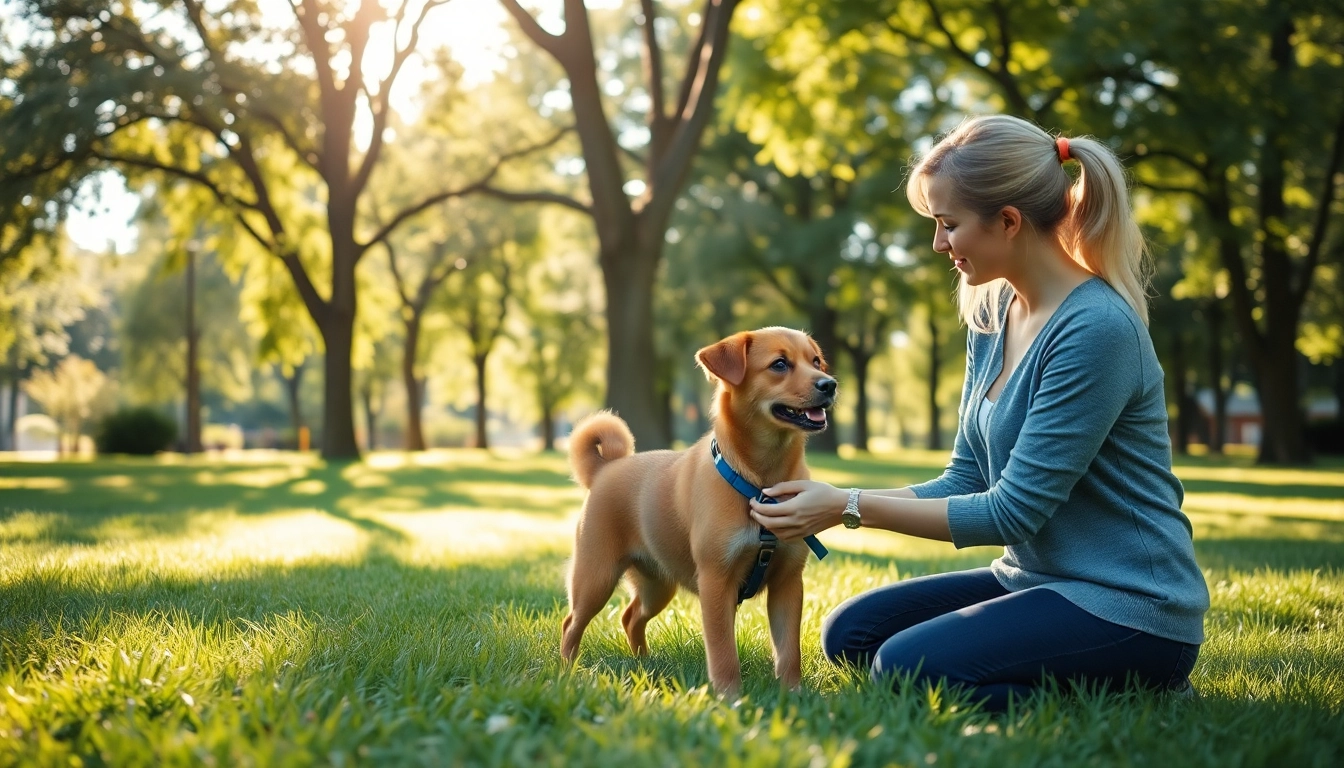Understanding Puppy Training in Houston
Puppy training is incredibly vital for both your furry companion’s development and your peace of mind as a pet owner. Growing up in Houston, a bustling metropolis with a vibrant community, there’s no shortage of puppy training services available. Finding the right approach and understanding the importance of training can lead to a harmonious relationship between you and your new best friend. Whether you are searching for puppy training Houston programs or just want to learn more about best practices, this comprehensive guide is tailored for every Houston resident who desires a well-adjusted puppy.
Why Early Training Matters
Early training can dramatically influence a puppy’s personality and behavior. Studies indicate that puppies that receive early training are more socially adapted and less likely to develop behavioral issues such as aggression or anxiety. Training should ideally begin when puppies are between 8 to 12 weeks old to capitalize on their natural curiosity and eagerness to learn.
Common Challenges in Puppy Training
Despite its importance, many new puppy owners encounter challenges in training. Common issues include:
- Potty training hurdles: Many puppies struggle to learn where and when to relieve themselves.
- Distraction management: Puppies can be easily distracted by their environment, making commands difficult to follow.
- Barking and whining: Excessive vocalizations can occur from anxiety or simply needing attention.
Benefits of Professional Guidance
While some owners may prefer to train their puppies independently, professional guidance offers significant benefits. Certified trainers can provide structured environments, personalized learning experiences, and consistent methodologies that foster effective learning in puppies. Certain trainers even specialize in methods tailored to different breeds and temperaments, ensuring the best approach for every puppy.
Puppy Training Techniques and Methods
Positive Reinforcement Basics
Positive reinforcement is a widely endorsed and effective method for training puppies. This technique involves rewarding desired behavior, which encourages puppies to repeat those actions. Rewards can vary; they can include treats, praise, or playtime, depending on what motivates your puppy the most. A study published in the Journal of Veterinary Behavior found that dogs trained using positive reinforcement showed more reliable learning and skill retention than those subjected to negative reinforcement methods.
Socialization Importance for Puppies
Socialization is equally crucial in a puppy’s early development. Exposing your puppy to a variety of people, environments, and other animals enables them to develop confidence and adaptability. The American Veterinary Society of Animal Behavior recommends that socialization experiences begin as early as 7 weeks but no later than 16 weeks to produce the best outcomes.
Obedience Training Essentials
Obedience training forms a foundational component of your puppy’s learning journey. The essential commands such as ‘sit’, ‘stay’, ‘come’, and ‘down’ not only facilitate good manners but also ensure safety in various situations. Trainers often recommend breaking down these commands into small, manageable steps that can be taught and reinforced incrementally.
Selecting the Right Puppy Training Program in Houston
Types of Training Classes Available
Houston boasts a variety of training programs that cater to different needs and preferences:
- Group classes: These often focus on socialization and basic obedience, providing puppies with the chance to interact with others in a controlled setting.
- Private sessions: Tailored to individual needs, these sessions provide one-on-one attention for challenging behaviors.
- Boarding school: Puppies are trained while staying at the facility, offering an intensive experience.
What to Look for in a Trainer
When selecting a trainer, consider their qualifications and training philosophies. Look for trainers who are certified by recognized organizations, such as the Association of Professional Dog Trainers (APDT) or the Certification Council for Professional Dog Trainers (CCPDT). These certifications indicate a commitment to ethical training methods and continued education.
Class Size and Environment Considerations
The environment and class size can also significantly impact the training experience. Smaller classes often allow for more personal attention, while a well-structured, distraction-free environment can foster quick learning. Be sure to visit potential facilities to assess their setup and inquire about the trainer-to-puppy ratio.
Popular Puppy Training Facilities in Houston
Top-Rated Training Centers
Several training facilities in Houston have garnered positive reputations:
- Puptown Houston Dog Training: Known for its comprehensive programs, Puptown Houston offers a plethora of training options that cater to various puppy needs.
- Believe in Dog Training: This unique center emphasizes lifelong learning and has a strong focus on positive reinforcement.
- Peace Love Dogs: A well-reviewed training company that offers a variety of training courses in a welcoming environment.
Community Reviews and Testimonials
Reading reviews and testimonials can provide invaluable insights. Many owners often share their experiences online, detailing what worked and how specific trainers handled their puppies. Reddit threads and Google reviews can be excellent platforms to gather this feedback. A notable mention in the Houston area is the subreddit r/houston, where local puppy owners frequently recommend various trainers.
Facility Amenities That Enhance Training
The right training facility should be equipped with features that enhance the learning experience. Look for amenities such as:
- Indoor and outdoor training spaces
- Safe, clean environments free of distractions
- Access to enrichment activities to prevent boredom
Measuring Success in Puppy Training
Setting Realistic Training Goals
Setting achievable training goals is crucial for both you and your puppy’s success. These goals should be time-bound, specific, and measurable. For example, rather than aiming for your puppy to “be well-behaved,” set a target for them to reliably respond to basic commands within a certain timeframe.
Tracking Progress Over Time
Keep a training journal to note your puppy’s achievements and any challenges faced. This practice helps you identify patterns in learning and areas needing additional focus. Regular assessments can guide modifications in your training methods to better match your puppy’s progress.
When to Seek Additional Help
If you notice that your puppy is consistently struggling with certain commands or exhibiting undesirable behaviors that hinder training, it may be time to seek professional help. Trainers can provide targeted strategies or recommend alternative training methods tailored to your specific challenges.





Leave a Reply